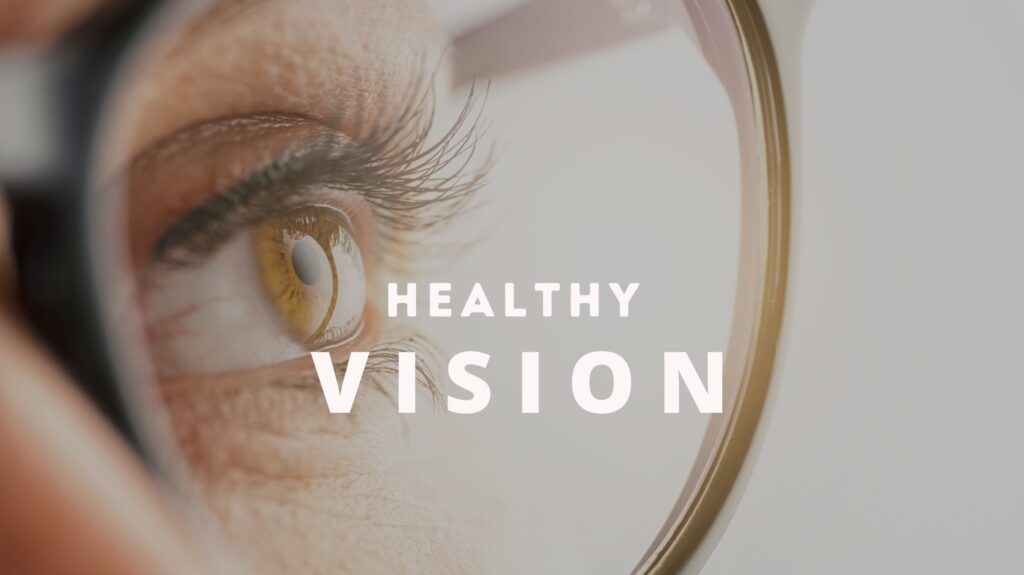Eyes on the Prize: Prolonging Healthy Vision

Your eyes are one of the most important organs in your body. They are responsible for capturing and processing visual information, allowing you to see the world around you. However, as we age, our eyes undergo natural changes that can affect our vision. It is important to take care of our eyesight so that we can maintain healthy vision for as long as possible.
In this article, we will discuss some simple ways to prolong healthy vision and keep our eyes in top shape. We will also touch upon some common eye conditions and diseases that can affect our vision, and how we can prevent or manage them.
Contents
ToggleUnderstanding Vision and Eye Health
Before we dive into ways to maintain healthy vision, it is important to understand how our eyes work and what factors can affect their health.
Our eyes are made up of several parts that work together to capture and process visual information. The cornea, lens, and retina are the key components of the eye. The cornea is a clear dome-shaped structure at the front of the eye that helps to focus light onto the retina. The lens, located behind the cornea, further focuses the light onto the retina. The retina is a thin layer of tissue at the back of the eye that contains light-sensitive cells called rods and cones. These cells convert light into electrical signals that are sent to the brain via the optic nerve.
Several factors such as genetics, age, and lifestyle habits can affect the health of our eyes. Some common eye conditions and diseases that can arise due to these factors include myopia (nearsightedness), hyperopia (farsightedness), astigmatism, cataracts, glaucoma, and age-related macular degeneration.
Tips for Maintaining a Healthy Vision
Now that we have a basic understanding of our eyes and what can affect their health, let’s discuss some ways to prolong healthy vision:
1. Schedule Regular Eye Exams
Regular eye exams are crucial for maintaining healthy vision. They can help detect any early signs of eye conditions or diseases, allowing for prompt treatment and prevention of further damage. It is recommended to have a comprehensive eye exam every 1-2 years, depending on your age and risk factors. In Jacksonville, FL, many reputable eye specialists can provide thorough eye exams and personalized care.
2. Protect Your Eyes from UV Rays
Exposure to ultraviolet (UV) rays can increase the risk of cataracts, macular degeneration, and other eye conditions. Whenever you are outdoors, especially on sunny days, make sure to wear sunglasses that block 99-100% of UVA and UVB rays. Additionally, wearing a wide-brimmed hat can also provide extra protection for your eyes.
3. Follow a Healthy Diet
A balanced and nutritious diet is not only important for overall health but also for maintaining healthy vision. Foods rich in antioxidants, omega-3 fatty acids, vitamins A, C, and E, and lutein can help prevent or delay age-related eye diseases. Some of these foods include leafy green vegetables, fish, nuts, fruits, and eggs.
4. Take Breaks from Screen Time
In today’s digital age, we spend a significant amount of time looking at screens- be it our phone, computer, or TV. This prolonged screen time can strain our eyes and cause symptoms such as dryness, blurred vision, headaches, and eye fatigue. To avoid these issues, follow the 20-20-20 rule: every 20 minutes, look away from your screen at an object 20 feet away for 20 seconds.
5. Quit Smoking
Smoking not only affects our overall health but also hurts our eyes. It increases the risk of developing cataracts, macular degeneration, and other eye diseases. Quitting smoking can significantly improve eye health and decrease the risk of vision loss.
Conclusion
Our eyes are precious, and it is important to take care of them to maintain healthy vision for as long as possible. By scheduling regular eye exams, protecting our eyes from the sun, following a healthy diet, taking breaks from screen time, and quitting smoking, we can improve our eye health and reduce the risk of developing eye conditions or diseases. Remember to consult with an eye specialist for personalized care and advice on how to best protect your vision. Let’s keep our “eyes on the prize” of healthy vision and take the necessary steps to achieve it!
Recommended For You
4 Things You Can To Do Improve Your Health
Most Inside
Most Inside offers high-quality recommendations and valuable updates to enhance all aspects of your life, providing premium guidance and enriching experiences.




